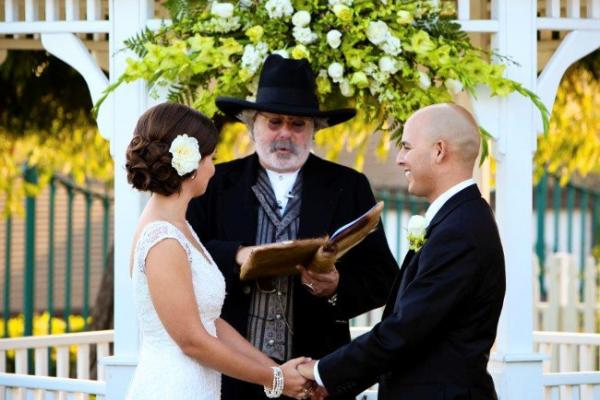Online ordinations are a fast-growing business, a way for ordinary people to play priest-for-a-day at their friends’ and family’s weddings. But these ordinations are also a 21st-century way of reaching into the metaphysical world.
Mandi Brown said she was 9 years old when she started hearing voices, which she said were the voices of her deceased grandparents. But it wasn’t until Brown was about 18 that she said she fully understood her paranormal abilities.
Now 29 and living in West Greenwich, R.I., Brown tries to channel her abilities into helping others, starting as an energy healer. But she said it was difficult to get clients without some kind of official stamp of approval. In 2010, she turned to the Internet for help.
“Online ordination actually opened a lot of doors as far as doing any type of spiritual work, including energy healing,” Brown said.
Brown is ordained through Universal Life Church in Modesto, Calif., and Universal Life Church Monastery in Seattle, both nondenominational (but separate) Internet churches. Universal Life Church has ordained over 20 million people alone and is seeing a 10 percent to 15 percent increase a year. Both online outfits allow a variety of ordination titles, ranging from cardinal to pastor to wizard, freethinker and more.
Brown was ordained as a high priestess but considers herself a spiritual reverend. She has performed weddings, a funeral, spiritual counseling, house blessings, cleansings, banishings, and crossings. She is also trained in exorcism rites but has yet to perform one.
Read the Full Article

